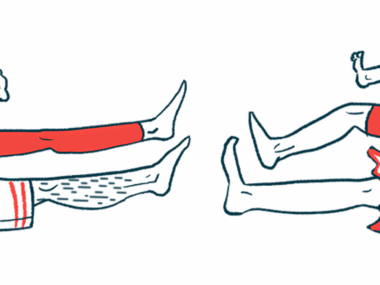Phase 2 trial of pirepemat to reduce falls sets new enrollment target
REACT-PD trial in Europe recruiting patients who experience frequent falls
Written by |

A Phase 2b trial testing the ability of IRLAB Therapeutics’ investigational oral therapy pirepemat to reduce falls in people with Parkinson’s disease is now expected to complete enrollment by September.
Recruitment began last May and was initially expected to finish by the end of 2023, but the company notes that factors such as the need for frequent clinic visits and related logistical support have affected enrollment.
Along with efforts to facilitate patient participation, IRLAB is also planning to submit a study amendment that would reduce the planned number of study participants, originally set at 165 people, based on recent analyses, which could help to speed enrollment.
The Phase 2b REACT-PD trial (NCT05258071) is still recruiting at 38 study sites in Europe. Eligible participants are Parkinson’s patients, ages 55-85, who are experiencing recurrent falls and are on a stable regimen of anti-Parkinson’s medications.
“Based on what we have learned about pirepemat, we see a great possibility to have a first-in-class drug for the treatment of falls in Parkinson’s that can change the treatment algorithm to benefit patients and their families,” Gunnar Olsson, MD, PhD, CEO of IRLAB, said in a company press release. “We are looking forward to the completion of the study.”
Pirepemat designed to strengthen nerve cell signaling in prefrontal cortex
Pirepemat, previously known as IRL752, is a small oral molecule designed to strengthen nerve cell signaling in the brain’s prefrontal cortex by blocking the 5HT7 and alpha-2 receptor proteins.
In doing so, the investigational therapy boosts levels of norepinephrine and dopamine, two brain signaling chemicals, or neurotransmitters, that are characteristically diminished in Parkinson’s. Their loss contributes to the motor symptoms of the disease that lead to increased fall rates in the Parkinson’s population.
REACT-PD is designed to evaluate pirepemat’s safety and effects on fall frequency when used as an add-on therapy in people with Parkinson’s disease, with the goal of identifying an optimal dose for a Phase 3 trial.
Enrolled participants must have experienced at least two falls in the month before the trial started. They are then randomly assigned to receive one of two doses of pirepemat or a placebo, taken as oral tablets three times daily for 84 days, or a little over 2.5 months.
The study’s main goal is to assess changes in fall frequency, recorded in a patient diary, compared with the month before the trial. Secondary measures include those to evaluate cognitive, postural, motor, and mental functions, as well as the effects on caregivers.
According to IRLAB, data from enrolled participants have shown that in the month before treatment was started, falls occurred two to three times more frequently than had been expected, with stable fall rates over the four-week pre-treatment period.
Participants enrolled in the study are reported to be highly satisfied during the study treatment period, which is further corroborated by repeated requests from patients and physicians for continued treatment beyond the clinical trial.
High but consistent fall rates without pirepemat means there is a greater opportunity to see a treatment effect once the participants start the therapy. Along with a lower-than-expected trial drop-out rate, these observations could mean that fewer enrolled participants are needed to clearly see the clinical impact of pirepemat. These findings help support IRLAB’s efforts to reduce the number of enrolled participants in the trial.
With enrollment now progressing at a steady pace, IRLAB continues to work with the contract research organization, clinics, and investigators involved in the trial to facilitate patient participation, according to Joakim Tedroff, MD, PhD, chief medical officer at IRLAB. This includes the allowance of home visits to reduce the frequency of necessary hospital trips.
“Participants enrolled in the study are reported to be highly satisfied during the study treatment period, which is further corroborated by repeated requests from patients and physicians for continued treatment beyond the clinical trial,” Tedroff said.
“I interpret this positive feedback from participants, caretakers, and treating physicians as a clear signal of the benefit of participating in this study.”






